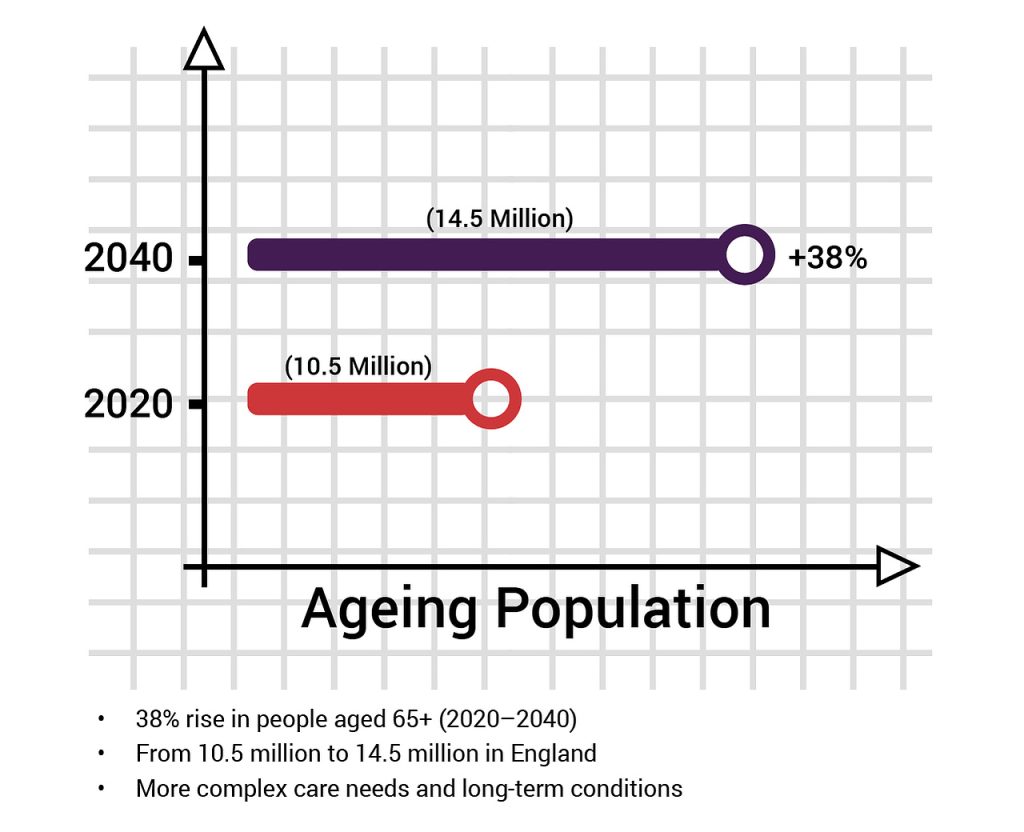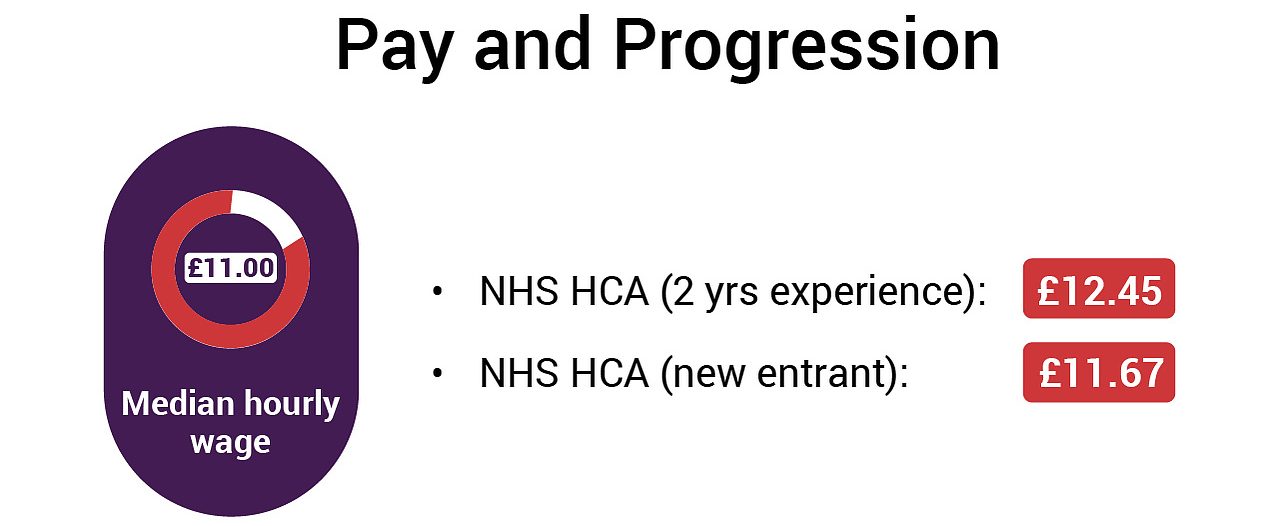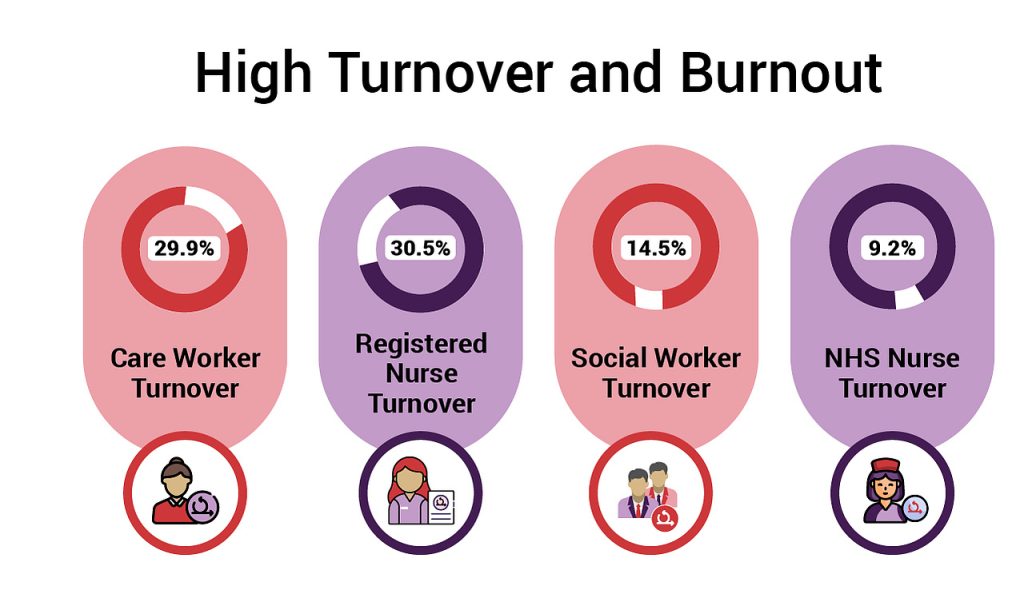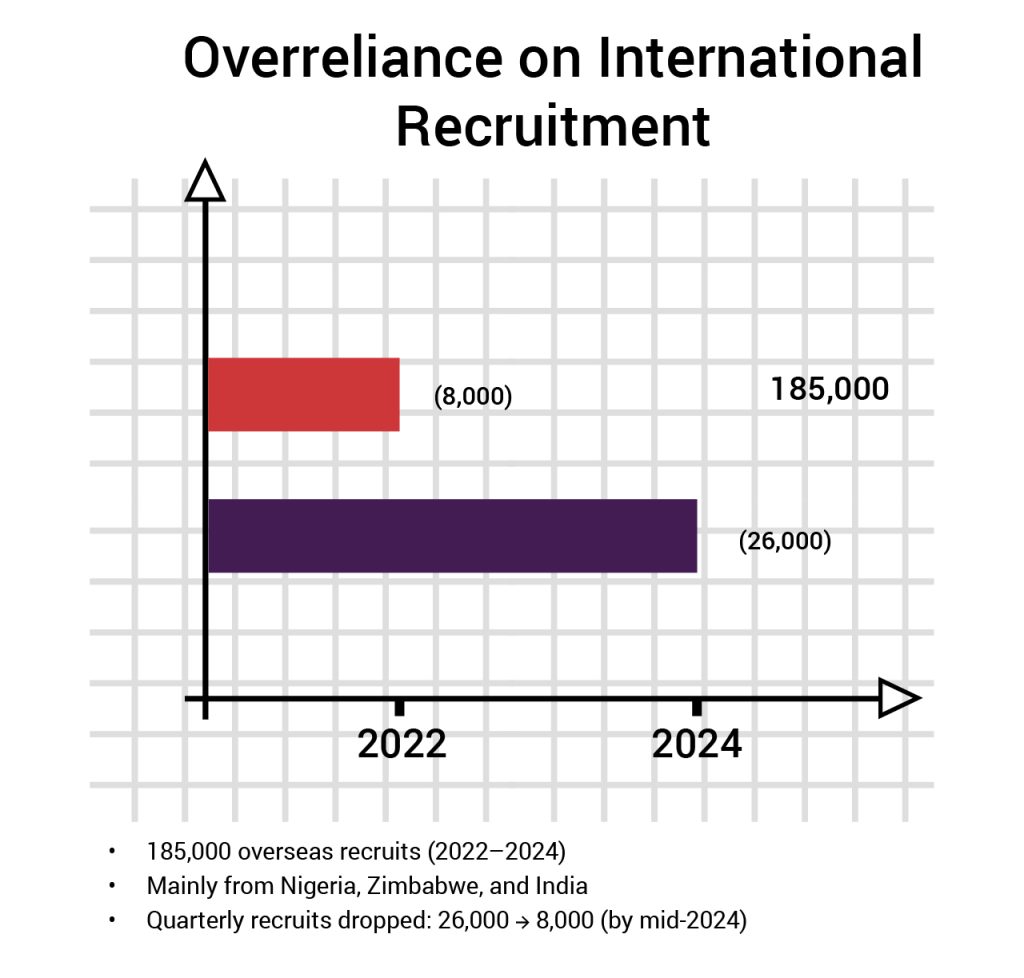Adult social care continues to be one of the UK’s most vital and fast-growing employment sectors as demand increases with an aging population and increasing demands for care. The quality and sustainability of care services in the UK are under risk due to the market’s extremely low supply of qualified care workers relative to demand. According to Skills for Care (2024), there are now 1.705 million filled posts in adult social care; the highest number since records began. Yet, 131,000 roles remain vacant, demonstrating that while opportunities are rising, the shortage of skilled workers is still critical.
The sector supports an estimated 1.59 million workers across 40,000 establishments, contributing £68.1 billion in gross value added to England’s economy. These numbers highlight how essential the workforce is, not only for the wellbeing of older adults but for the UK economy itself. This blog will cover the reasons for the demand for professional adult care workers, while also addressing labour shortages, improving care quality, and increasing the sector’s invaluable contribution to the health of older people and the UK economy.
What Jobs Are in Most Demand Right Now in the UK?
The healthcare industry is one of the most solid and strongest employment markets. The most in demand role in the UK right now is the adult care worker. The number of filled positions increased by 70,000 between 2022–2023 and 2023–2024. This was the highest increase since records began in 2012/2013. The adult social care sector has a greater vacancy rate than the UK economy (2.8%) and NHS in England (6.9%).
Rising Demand for Senior and Specialist Roles
With the increase of complex care needs, the sector is heavily dependent on experienced and qualified professionals to lead and deliver specialised support. Most of the key roles that are in high demand are:
- Senior Care Workers – manage the daily care activities, mentor the junior staff, and ensure the high standard of the service.
- Team Leaders and Supervisors – plan and organize care delivery, staff performance management, and facilitate communication within the teams.
- Registered Managers – oversee compliance, quality assurance, and be in charge of the overall organisation of care services.
- Registered Nurses – provide clinical oversight, medication management, and complex health interventions.
- Occupational Therapists – empower people to become independent through rehabilitative techniques.
- Social Workers – protect vulnerable individuals by determining their care requirements and organising and coordinating assistance.
Why Is There a Shortage of Care Workers in the UK?
The shortage of care professionals in the UK is a multifaceted issue. It’s the result of many factors coming together, including poor wages, difficult working conditions, regulatory problems, and demographic shifts. Demand for social care is increasing, and this pattern is predicted to continue.
Following are the reasons for a shortage of Care Workers in the UK:
🧓 Ageing Population
The number of elderly people in the UK is increasing, which is directly driving up demand for adult care services. Between 2020 and 2040, the number of people in England who are 65 and older is expected to increase by 38%, from 10.5 million to 14.5 million. People over 65 are living longer and, in most cases, have multiple conditions that need ongoing care. As more and more elderly people need specialised disease care, such as for dementia, they will need trained personnel with specific knowledge and abilities. The growing number of senior individuals also leads to more complex care cases, which is why there is a need for skilled professionals to handle mental and physical illnesses.

💷 Pay and Progression
The median hourly wage for care workers was £11.00, which was less than that of NHS healthcare assistants (HCAs) with two years of experience (£12.45) and those who were new to the position (£11.67). The majority of care workers do not experience an increase in their wages significantly unless they transition into managerial positions, thus the sector becoming less attractive to those who consider entering it.

🔄 High Turnover and Burnout
The greatest turnover rate among direct care providers was 29.9% for care workers. In addition, compared to other regulated professions (social workers had a turnover rate of 14.5%) and NHS nurses (9.2% as of March 2024), registered nurses had a rather high turnover rate (30.5%). Among other factors, long working hours, the emotional nature of the work, and heavy workloads are causing staff to burn out, and it is estimated that 7.2 million sick days have been lost due to illness in 2023/24 only.

🌍 Overreliance on International Recruitment
Throughout 2022 to 2024, a total of 185,000 overseas recruits have been the main stay of the sector, most of them coming from Nigeria, Zimbabwe, and India and thus, the sector has been able to bridge its critical skill gaps. Nevertheless, the tougher immigration regulations that came into effect in 2024 have curtailed the inflow significantly so that the number of new recruits per quarter has gone down from 26,000 to just 8,000 by the middle of 2024.

What Are the Current Challenges Facing Adult Social Care?
The current challenges faced in adult social care in the UK is struggling with a series of problems that largely revolve around workforce shortages, funding issues, and increased demand. The quality and maintenance of care services may be jeopardised by the continuation of these problems if a considerable amount of money is not invested and the sector is not reformed over time.
Following are the challenges faced in adult social care in UK:
⚠️ Persistent Staffing Gaps
Despite record employment levels, there are 131,000 posts that remain unfilled. The shortage of staff increases the workload of those who are already employed and the continuity of care is affected.
👵 An Ageing Workforce
Over 27% of workers are 55 years old or over and therefore a large proportion of them will retire within the next 10 years. It is very important to attract young people to the industry now.
💷 Pay Inequality and Recognition
While wages have increased, the difference in pay between care and the NHS still remains. The low pay situation, together with high emotional demands, is a reason why workers are still leaving the care sector for other industries.
🎓 Training and Career Pathways
Only 46% of employees have qualifications, thus there is an urgent need for the introduction of a structured training system, provision of apprenticeships and clearer promotion ladders.
📈 Growing Demand
By 2040, the ratio of adult social care posts to people aged 65+ in England will be 1:6. This shortage of care staff could become the biggest crisis in the public sector if there is no strategic investment.
Adult Social Care: A Rewarding and Secure Career Path for 2025 and Beyond
The need for trained adult care workers in the UK is more than just the requirement of filling the available positions; it is an issue concerning the establishment of a workforce that is clean, professional, and has a sense of being valued. The injection of funds into education, good wages, career advancement, and the general health of the staff will, undoubtedly, be the pillars on which the sector will stand in the long run. In the wake of the aging population and the increase in care needs, the care profession will be one of the most secure and rewarding career paths in 2025 and beyond. Those who are looking for a meaningful career that has a real impact on people’s lives should know that there is no better time than now to join adult social care.

